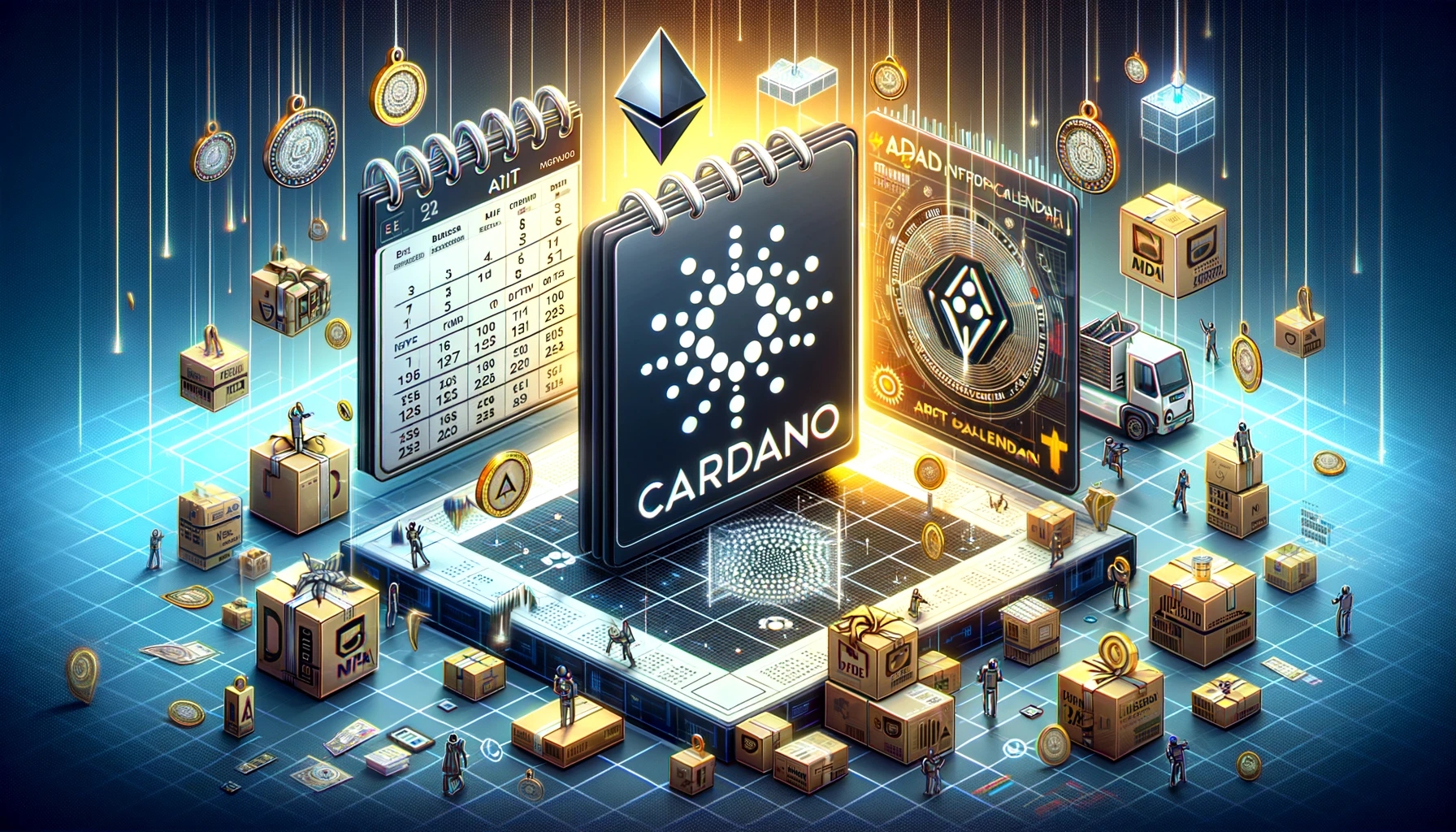Breaking Down Twelve and a Half — Gary Vaynerchuk’s Emotional Intelligence Book You Didn’t Know You Needed
December 13, 2021 - 17 min read
This article breaks down Gary Vaynerchuk's new book Twelve And a Half Leveraging The Emotional Ingredients Necessary For Business Success and why everyone in the NFT community should consider reading it.

Please note, this blog post contains affiliate links to the book reviewed below. If you click on a link and purchase the book, I am paid a small commission for Amazon that will be used directly as an investment back into this website to provide more value for my readers. I will never, ever recommend a product I haven’t used or don’t believe in. Please note: many people are giving away the book for free. Head on over to Gary Vaynerchuk’s Twitter account to check for a free copy first, before purchasing.
Forward
What!? This isn’t a post about an NFT project, a technical solution for buying or selling an NFT, or a market update. Why are you writing it?
No, Twelve and a Half, Leveraging The Emotional Ingredients Necessary for Business Success by Gary Vaynerchuk is not an NFT (although buying 12 copies of the book in August will be rewarded with an NFT, which is why many are giving the others away for free), but it is the most critical book for anyone participating in the NFT space, and here’s why:
(1) Deploying the emotional ingredients in this book will help you better navigate the tremendous opportunities and risks Web3 will introduce in terms of career opportunities, relationships, communities, and financial opportunities to optimize for happiness
(2) Web3 will afford us more accountability for our own lives than ever before but is also likely to lead to more anxiety, depression, and unhappiness for those who don’t check in with themselves emotionally
(3) Deploying these ingredients can help us reach the potential that is true for ourselves and not others — we will constantly see web3 millionaires that might hurt our self-esteem if we aren’t one of them or if we are but lose a substantial portion of that
(4) The “think for yourself, act for yourself, but achieve it with others” economy is here (i.e. a DAO) — relationships are so critical in this space and this book will provide practical advice to deal with sticky situations that may shock you (yes, really)
(5) We will cycle between fear, uncertainty, greed, and certainty in this space much faster than at any other time in human history. The perspective this book encourages will help you and others navigate that.
What are the 12 Emotional Ingredients in Gary V’s New Book?
(1) Gratitude — “The quality of being thankful; readiness to show appreciation for and to return kindness” (page 3)
(2) Self-Awareness — “conscious knowledge of one’s own character, feelings, motivations, desires.” — (page 11)
(3) Accountability — “the fact or condition of being accountable; responsibility” — ( page 17)
(4) Optimism — "Hopefulness and confidence about the future or the successful outcome of something" — (page 23)
(5) Empathy — "the ability to understand and share the feelings of another" — (page 27)
(6) Kindness — "the quality of being friendly, generous, and considerate" — (page 33)
(7) Tenacity —" the quality or fact of being very determined; determination" — (page 39)
(8) Curiosity —" a strong desire to know or learn something" — (page 45)
(9) Patience — "the capacity to accept or tolerate delay trouble or suffering without getting angry or upset" — (page 51)
(10) Conviction — "a firmly held belief or opinion" — (page 55)
(11) Humility — "a modest or low view of one’s own importance; humbleness" — (page 59)
(12) Ambition — "a strong desire to do or achieve something, typically requiring determination and hard work"—(page 65)
How to Apply the 12 Ingredients to Your Life
The book contains numerous scenarios with practical advice from Gary Vaynerchuk on how to apply a mix of these ingredients. He deals with difficult conversations like a business partner withdrawing money from an account without communication, being passed over for a promotion, how to ask for a raise, what to do after you have discovered NFTs, if you should leave a high-paying job to start your own business and many other situations.
Gary even kicks off the book with a story about his own difficult situation, when an executive from one of Vayner Media’s largest clients asks him to fire an employee that accidentally sent a malicious tweet, to which Gary declined.
If you are wondering about the why and the thought process behind this decline, that’s what the book is all about.
It is about the why behind decisions that require emotional intelligence from a successful entrepreneur who connected with thousands of fans and has built a 7-figure global audience.
So many of us want to ask Gary questions because he is one of the best in the world at giving practical advice even without the full context and this book is a window into characteristics that help him navigate these situations.
This isn’t a framework. It’s not even a recipe.
It’s the ingredients (with examples of the recipe), which allow us to think for ourselves but in a much different lense that isn’t talked about enough.
The NFT space requires a lot of decision-making skills:
Should I buy this NFT? Should I sell it?
How can I maximize the opportunity of this web3 movement with my skill-set?
I’m down big on a project, what do I do now?
I want to quit my full-time job and go into NFTs, where do I begin?
There’s only one person who can answer these questions, and that’s you after reading this book, you’ll have a much different perspective and will likely be more grounded in how you answer, react and execute in those situations.
Breaking Down My Favorite Quotes from 12 and a Half and Adding My 2-Cents
“The growth potential of a business is limited by the emotional intelligence of their leaders. This goes for sports teams, families, and sovereign nations.” — Gary Vaynerchuk xvii
In my opinion, the growth of a business, partnership, personal relationship, NFT community, personal brand, career, etc. are all dependent on the emotional intelligence of their leaders. Gary goes on to write that if you are a parent, you are a leader. I believe (and think he would agree) that you are the leader of your life. You are the founder, CEO, and President of your own life and you’ll be limited by your own emotional intelligence.
“Insecurity and anger can be tremendous drivers of success — but I don’t believe they lead to happiness” — Gary Vaynerchuk, page 8
I’ll take a minute to be humble: I feel insecure that I haven’t made life-changing money from NFTs. I held a Curio Card Apple when it hit 23 ETH and has since retracted to about 2 ETH. I overpaid for two CryptoStrikers when patience would have yielded better deals. I made 1.8 ETH on a Cryptoadz and watched it sail all the way up to about 15 ETH. I didn’t buy a VeeFriend in May and missed an opportunity to obtain a coveted FaceTime Token. I fomo’d into Monkey Bet DAO, which promptly crashed from .34 ETH to about .1 ETH and I’ve called into question my savvy about markets and behaviors.
My initial reaction was a mix of insecurity and anger. It still is, but it’s fading. I decided to spend hours and hours (once staying up till 5 am at a chance for a Cristiano Ronaldo CryptoStriker) and went harder on this blog, writing about 30 articles in 3 weeks (while growing a business and juggling a full-time job).
I lost total sight of what made me happy and burnt out. I didn’t blog for about 2 months. I even stopped looking at NFTs completely for about a month.
When I later found out that I made it to Round 2 of Gary V’s Sorcerer Scholarship program, ambition, confidence, and gratitude started to replace the insecurity and anger. I’ve since settled into a more balanced routine and have been able to accomplish more of my goals because of it.
“Much of the day-to-day angst people face comes from a feeling of helplessness. accountability can potentially reverse that. —Gary Vaynerchuk, page 21
I related to this one the most. I thought I was doing all of the right things, but felt stuck in my job and thought I was helpless. I couldn’t make it past the final rounds of interviews at other companies and sweeping anxiety took over me any time I had to go into the office at my former job.
2.5 years later and I am full-time at a company I started. I get paid to freelance write for ONE37pm. I have a blog that’s nearing 50,000 views. I have 1 year's worth of savings (well, maybe 9 months — thanks, inflation) and I’m much, much happier.
Accountability was a positive consequence of a newfound focus and direction for me. My journey started by going to garage sales and selling items on eBay. It taught me that I can earn income independently and that I had more control than I previously thought. Hello, accountability.
A note on accountability: things out of our control will happen to us. You may have trauma from when you were younger. You may get into an accident that keeps you off your feet, which may interfere with your type of work. It’s okay to recognize that it’s not your fault, but it is your responsibility with how you react. That perception shift alone may open you up to new ideas in the face of hurdles outside of your control.
“Optimism is being thrilled about your next at-bat while acknowledging that you’re not guaranteed to hit a home run” — Gary Vaynerchuk, page 25
I’m a fan of patient optimism — I was in a habit of thinking every perceived opportunity was a one-time deal and if I failed, it was over. This creates anxiety, pressure, and reduced performance. It’s actually ridiculous how many opportunities came after the ones I thought would be gone forever.
Web3 will bring you opportunity after opportunity (and if it doesn’t, something else will). Major league baseball players are lauded if they bat .300, which means 3 out of 10 at-bats, they will get a hit.
Barry Bonds set the record for Home Runs in a single season (73) in 476 at-bats. This means he hit a Home Run 15% of the time and set a dominant world record doing so.
“Groups who have been historically oppressed tend to draw optimism from other successful people who look like them. That’s one of the reasons why representation is so important.” — Gary Vaynerchuk, Page 25
You have the power to lift others up in the NFT space. It’s brand new. A few people have had noticeable success, but a lot of them remain anonymous. You have the opportunity to share a project, buy a project, give someone a compliment and deploy kindness that may inspire someone new to get into the space.
“When you’re optimistic about the future, you can be the bigger person when others do wrong by you, but when time starts running out, you start lashing out.” — Gary Vaynerchuk, page 35
This resonated with me hard, because, in a lot of ways, the business I started became my identity and if you aren’t careful, your NFT success will do that to you, too.
If you just made 40 ETH on an NFT, not much will likely bother you the rest of the day, right? You’ll be confident, happy, and okay feeling undervalued at your job, underappreciated by your peers and what have you. The success temporarily stands in for self-esteem and without addressing it, the next time you lose 50 ETH on a bad investment, the tables will turn and fast.
Or say you haven’t made any ETH but are confident you will in the future. That fantasy could stand in for your self-esteem and cause issues if it hasn’t happened in a certain time period.
“When you’ve put yourself in a position to base your happiness on outside validation and on material proxies of success, you will always, and I mean always, be on the cusp of burnout.” — Gary Vaynerchuk, page 40
It’s really tempting to brag about how we made 1 ETH on an NFT flip (it’s $4,000 after all!) but if we are seeking outside validation, what happens when people who are eager to call NFTs a fad crash down on our 2 ETH loss?
To test this on yourself, keep your wins private. Do you really want to buy that NFT, or are you buying it in hopes to share a win on social media? Do you really want to go into NFTs full-time, or are you more excited to share a tweet saying you are doing it?
When I left my full-time job to pursue my business, I couldn’t wait to share it on LinkedIn. But I haven’t yet, and it’s been nearly two months. It was a good test that I did it for the right reasons.
“Conviction and tenacity work hand in hand. When you have conviction in what you’re doing, it’s easier to be tenacious.” — Gary Vaynerchuk, page 42
Do you start a lot of projects but don’t finish? Me too. We all have a tremendous opportunity, but if you don’t have a lot of conviction, it’s hard to put a lot of work behind it. Ideas feel good at first, but then three weeks in, it’s on to the next — much like the NFT market ;)
Many of us will have the chance to learn about ourselves, trust our gut instincts and get data on how our convictions play out.
“In the early days of social media, many experts dismissed it as a fad. They said the same thing about web 2.0. When I started talking about the rise of sports cards as an interesting alternative investment, people didn’t believe it was practical . . . the world curiosity is underrated in our society . . . but I believe it’s one of the most important characteristics for success in business.” — Gary Vaynerchuk, page 46
“If you have an inflated ego, curiosity gets suppressed.” — Gary Vaynerchuk page 47
I remember listening to a podcast with Gary V discussing Bitcoin last December. A few days later, I bought some Bitcoin ($500 worth) and knew Ethereum existed, but chose to ignore it because my ego told me instantly that it wasn’t worth looking into. It felt good to have a fake conviction (ego) than humbly spending time researching it to make a more informed decision. I might have that Facetime token if I had more curiosity ;)
“A staggering number of people from eighteen to thirty feel anxiety about their careers because they don’t have a good relationship with patience.” — Gary Vaynerchuk page 52
The NFT market struggles with patience. How many of you have seen someone mint a project for .05 ETH then sell it in under four hours for a loss? This doesn’t mean hanging on for dear life if a project is sinking, but it can help in a few other areas.
Remember my post chalking up my NFT mistakes so far? They don’t bother me nearly as much as they did, because I have conviction, and 6 months is too short of a window to see if I am right or not.
The majority of us will have 30+ years in this space. Never spend money you can’t afford to lose, but try to remember that fact.
“If Elon Musk, Warren Buffett, Oprah Winfrey, and Jeff Bezos all walked into my room right now and said NFTs have no long-term potential, you couldn’t imagine how little I’d care about what they have to say. . . . the opinions of four people, no matter how successful they may be [sic] will not change my mind.” — 56
“Even if they were successful in the past, that’s not always a guaranteed indicator of their correctness about the future.” — 56
“I prefer dying on my own sword over dying on someone else’s. I hold on to my convictions until the market tells me I’m wrong. And when I’m wrong, I make adjustments with conviction too.” — 58
Things start to get very confusing if you blindly listen to others — if it goes well, can you really trust yourself? If it goes poorly, you’ll distrust yourself even more and lose that conviction. Many of us would be better off if we trusted our guts and would get more clear with our conviction and intuition over time because the data is cleaner. You can still factor in other perspectives, but if the majority of your plays are plays you and you alone make, it’s easier to see how you alone perform in your conviction.
“When you have a fair, modest view of yourself, you have a significant advantage over others, because you’re willing to do with others aren’t.” — Gary Vaynerchuk page 62
If you quit your job to go full-time in NFTs and don’t have a modest view of yourself, you may be afraid to ask for help. Your ego may diminish your curiosity. You may not be willing to spend hours writing on a new blog you created that earns you no income. This scenario plays out in so many ways, but there are thousands of others who could have been in NFTs early, but were above the research phase, and never made a move.
“One of the reasons I’ve always loved being an entrepreneur is that the business results are the judge of whether I’m successful or not — not any one human.” — Gary Vaynerchuk page 77
We are all making some kind of bet on the NFT space, but ultimately, the market decides. Conviction is amazing and many used the conviction to hold during bear markets when the market wasn’t so receptive, but whether we like it or not, the market decides the values, outcomes, and communities in the web3 space. Acknowledging this fact can help us get more clear on our convictions by dampening our egos.
“People talk about how employees should be grateful to have a job, but it’s also true that companies should be grateful to have employees.” — Gary Vaynerchuk page 79
Replace employees with communities and companies with NFT projects. Gratitude will serve us all well in web3, no matter which side of the table we are on.
“Doing work for somebody is almost never the right answer . .. I didn't even know what a hamper was. I’m serious. I was not even aware of the existence of hampers because, when I was a kid, I would dump all my clothes on the floor and miraculously they would be clean the next day.” — Gary Vaynerchuk pages 101 and 102
This was my favorite quote from Twelve and a Half — seriously, Gary V didn’t know what a hamper was and it’s the best example to highlight what happens if we do work for others, or we let others do work for us. To really get web3, we need to get in the dirt and learn for ourselves.
The Final Verdict
The scenarios and Gary V’s thought process alone are worth multiples of what the book costs. The book also includes exercises to help you learn how to implement these ingredients in the context of your life.
While this has been a break from my regularly scheduled programming, I felt too compelled to write 3,000+ words about this book, which you can buy here to sit on the sidelines and not share.
Many will ignore this book or categorize it as “self-help” but if you’ve read this far, you know that ego is dampening curiosity and turning those people off to something new.
I genuinely think the book will help many of you in a practical way, I wouldn’t have spent hours writing this if I didn’t believe that.
If you get the book and read it, hit me up on Twitter with your feedback.
Newsletter
Enter your email address below to subscribe to my newsletter
latest posts





